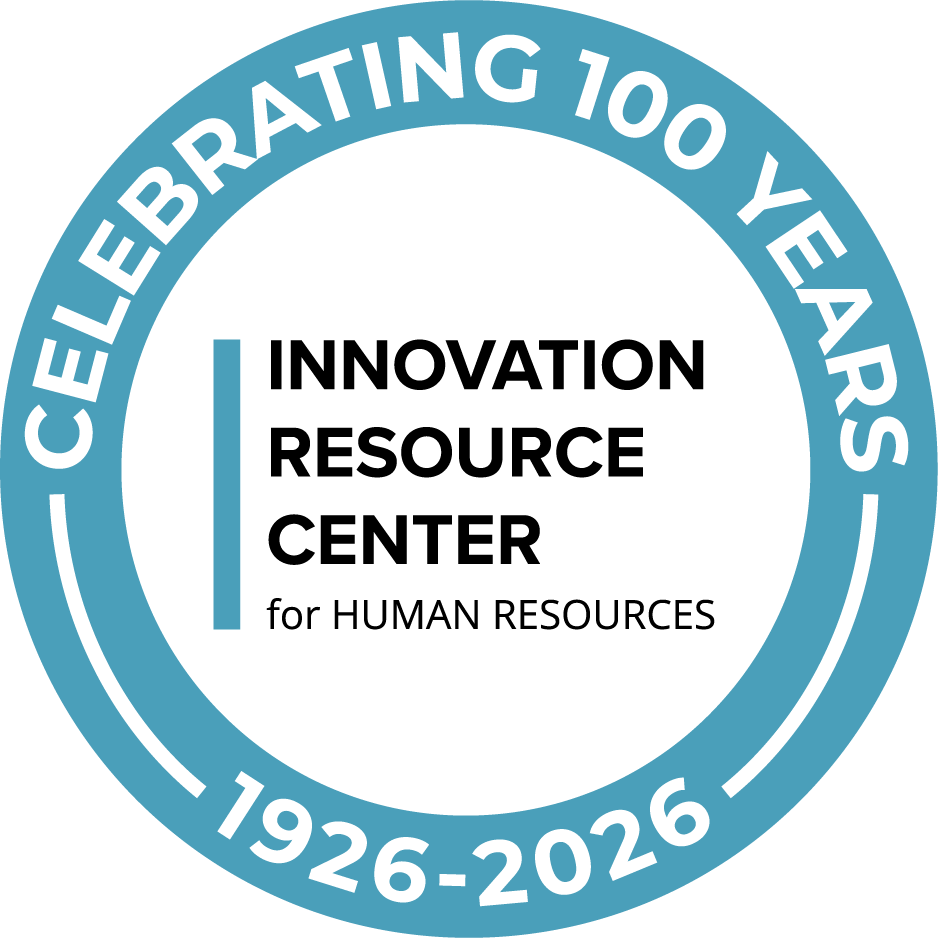Just Released!
About this IRC® + IRC4HR® Project
Disagreements over contentious social issues can break the trust that exists among staff and between staff and leaders, and is difficult to repair. Internal relationships can also affect how customers, clients, and the public perceive the trustworthiness of organizations and their messages. Given this, trusting relationships are critical for resolving conflict within organizations and organizational teams.
Because they are called upon to address social issues, museums provide a microcosm for studying trust in the organization. Modern museums are tackling issues such as unionization, climate change, racism, restitution of cultural artifacts, and sources of donor wealth. For organizations that have traditionally thought of themselves as neutral ground in their community, this is a challenge – one that recalls the social revolution of the late 1960s and 1970s in the US, which led to a redefinition of museums from collecting to educational organizations.
This project seeks to identify ways nonprofit leaders, especially those working in museums, can support and build trust even when working through contentious issues.
To date, the researchers have completed three publications as part of this project.
First, the researchers constructed a framework for building trust. Their model highlights the intersections between identity-based trust and experience-based trust. Identity-based trust encompasses our feelings of attraction and affinity for someone, and often forms before we’ve had any actual interactions with that person. Once we do have interactions with them, then we can develop experience-based trust depending on that person’s competence, reliability, sincerity, integrity, and benevolence.
Next, the team produced a literature review that encompassed 24 peer-reviewed articles chosen from an initial list of 235 publications. The results of the literature review indicate that most of the research on internal trust in nonprofit organizations focuses on how different leadership models or leader behaviors impact employee trust. Relatively few studies explore how trust evolves over time through leader-staff interactions.
Third, the team analyzed media stories to uncover insights about disputes between leaders and staff in museums. In part, they found that museum leaders’ trustworthiness was assessed much more frequently than staff trustworthiness.
IRC4HR co-hosted a webinar, “Building Cultures of Trust in 21st Century Organizations” (video) that presented findings from the research. (See the findings summary as well.)
The team then interviewed museum leaders about how they work to build, maintain, and repair trust with employees. Leaders were asked to describe two scenarios – one where a contentious issue was quickly resolved, and another where an issue took a long time to resolve – and then described the actions they took in response to these situations and how these actions impacted organizational trust. The nature of the issues and the actions leaders took to resolve workplace disputes are presented in “Building and Repairing Leader-Staff Trust in Times of Workplace Conflict”.
Researchers
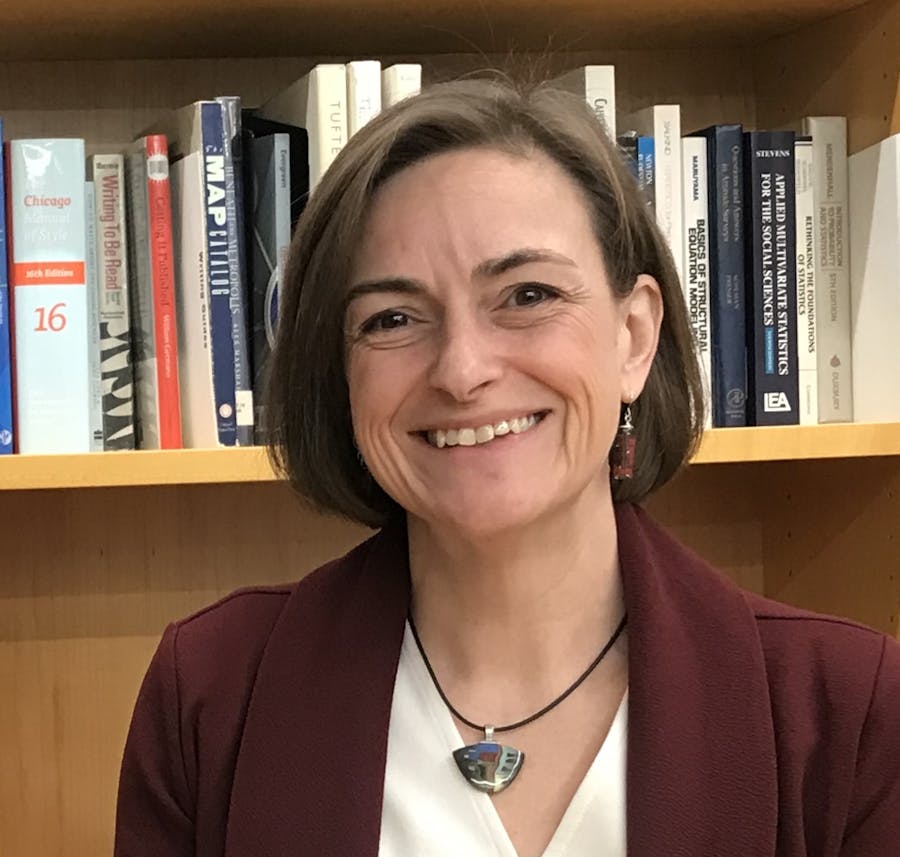
Christine Reich, PhD
Christine Reich is a social science researcher and former museum executive who has moved between research and practice throughout her career. As Knology’s CEO and Senior Research Officer, she directs its research agenda and transdisciplinary team of researchers. She has authored over 30 articles related to museum learning, including multiple studies on organizational change in museums. Dr. Reich is also a lecturer on formative evaluation and on interactive learning at the Harvard Graduate School of Education and President-elect of the Visitor Studies Association.
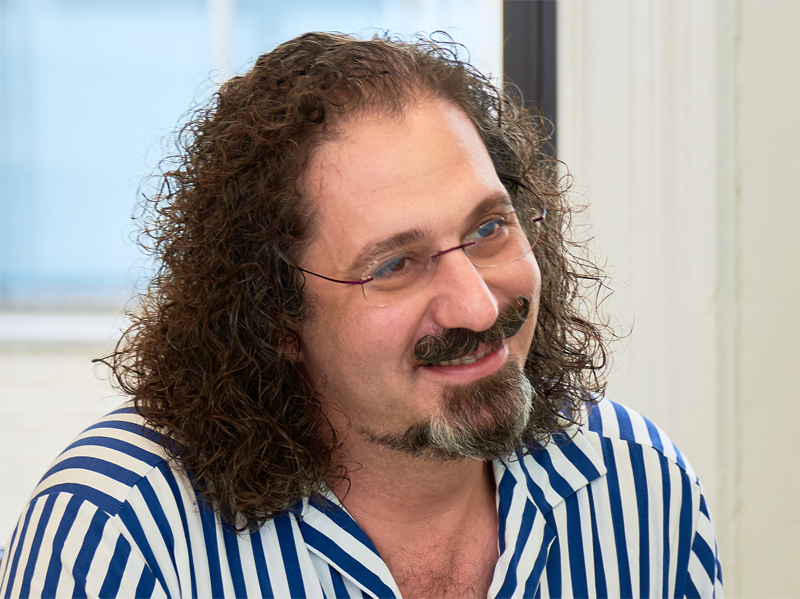
John Voiklis, PhD
John Voiklis is a cognitive and social psychologist and Principal Researcher at Knology. His expertise includes the role of trust and social-moral motives in learning and decision-making. Dr. Voiklis has worked with the Association of Children’s Museums (ACM) since 2017, including redesigning the ACM member survey, providing guidance to museum leadership on data literacy and trends in the children’s museum field, and studying how children’s museums can use virtual programming to maintain, repair, and amplify the trustworthiness families attribute to them. Additionally, he has designed and validated methods for assessing the reach and credibility of zoos and aquariums as conservation.
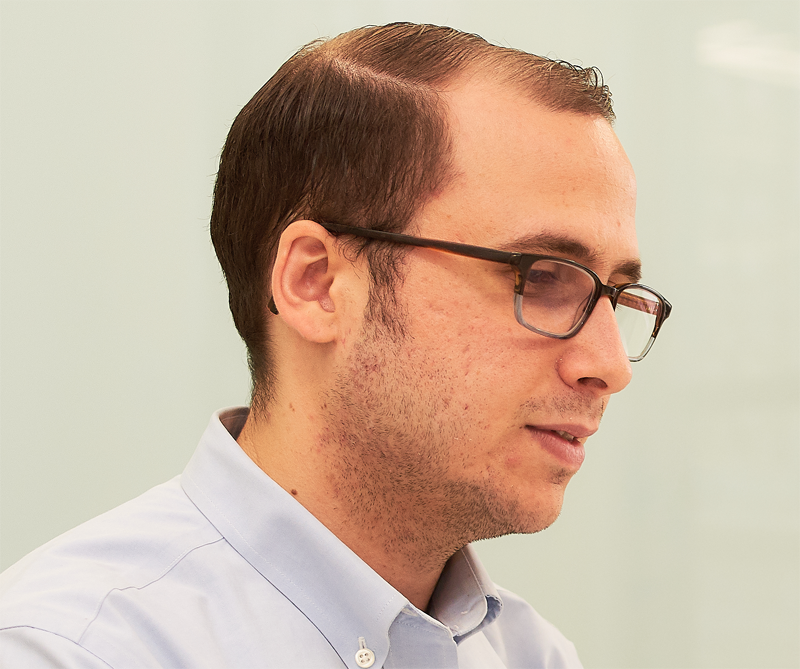
Shaun Field, MA
Shaun Field has managed Knology’s Association of Children’s Museums (ACM) project portfolio since 2019. He is currently supporting the redesign of the ACM’s data collection tools, reporting methods, and helped develop the ACM Trends Data Hub featured on ACM’s website. Shaun has expertise coordinating large numbers of stakeholders and participants in focus groups and program level data collection, including managing 125 zoos and aquariums working to aggregate impact data across the USA.
IRC® + IRC4HR® Project Publications and Learning Materials


Employee Assessments of Leader Trustworthiness

Building and Repairing Leader-Staff Trust in Times of Workplace Conflict
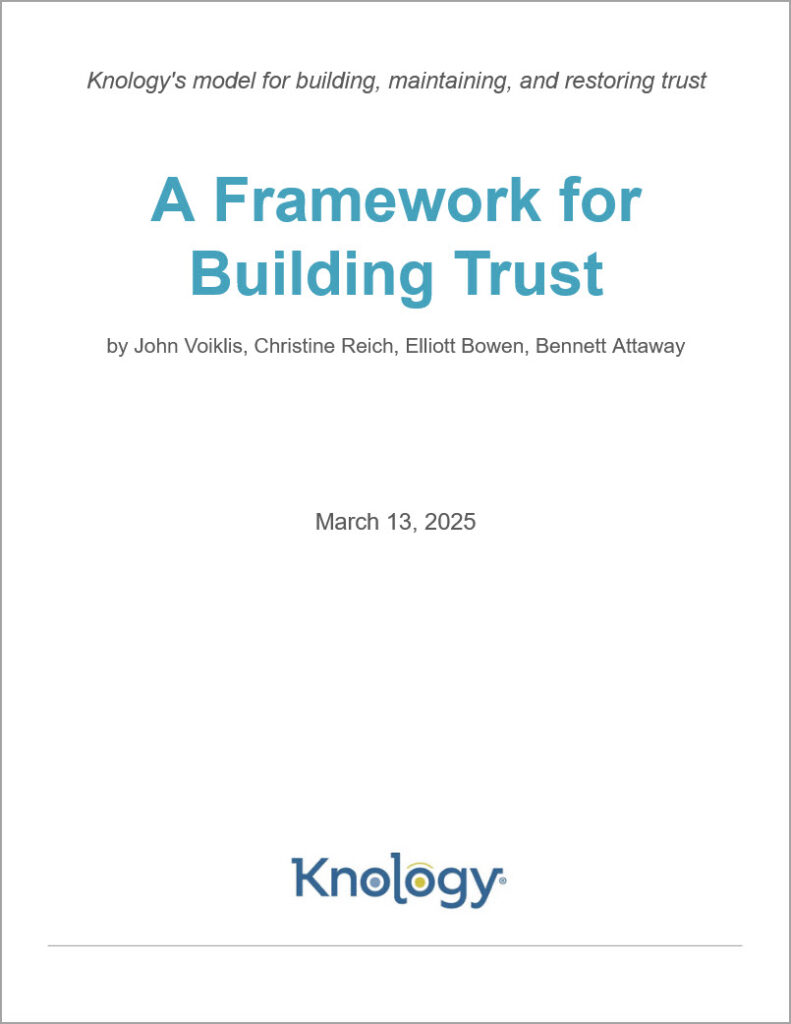
A Framework for Building Trust
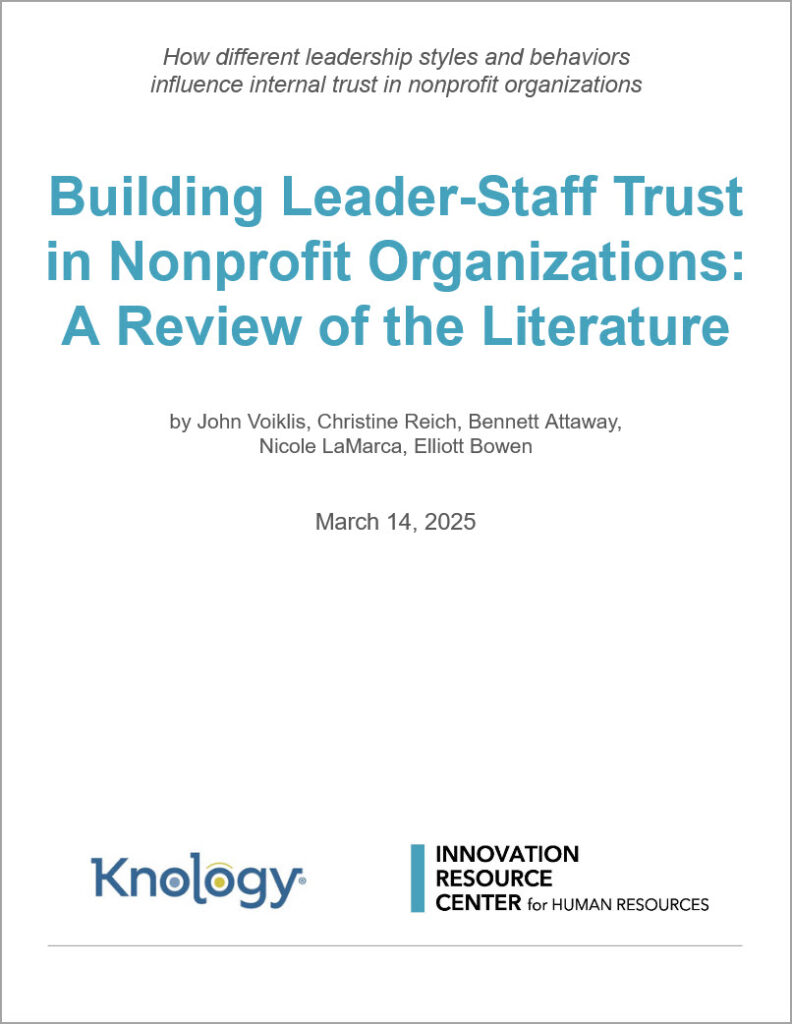
Building Leader-Staff Trust in Nonprofit Organizations: A Review of the Literature
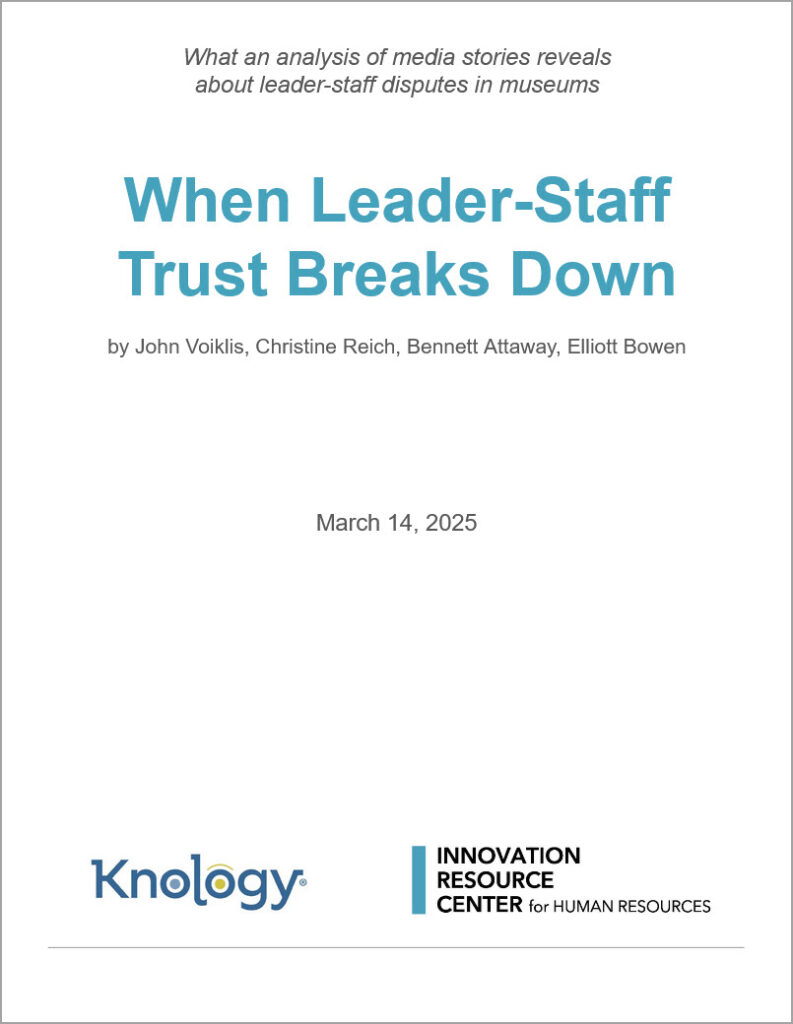
When Leader-Staff Trust Breaks Down
IRC® + IRC4HR® Webinars and Studies
Building Cultures of Trust in 21st Century Organizations (video)
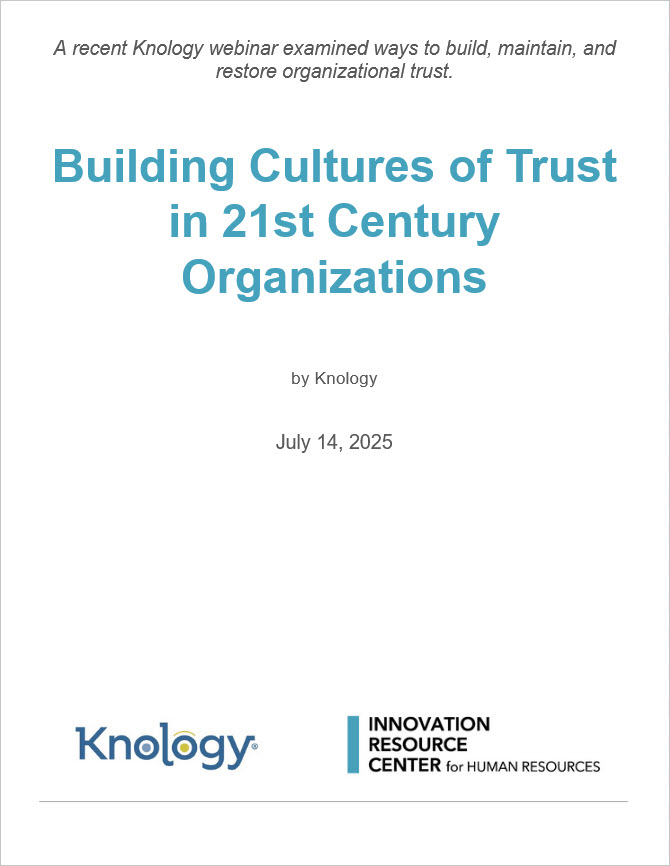
Building Cultures of Trust in 21st Century Organizations (article)
This blog post summarizes the webinar and includes poll results from the event.
